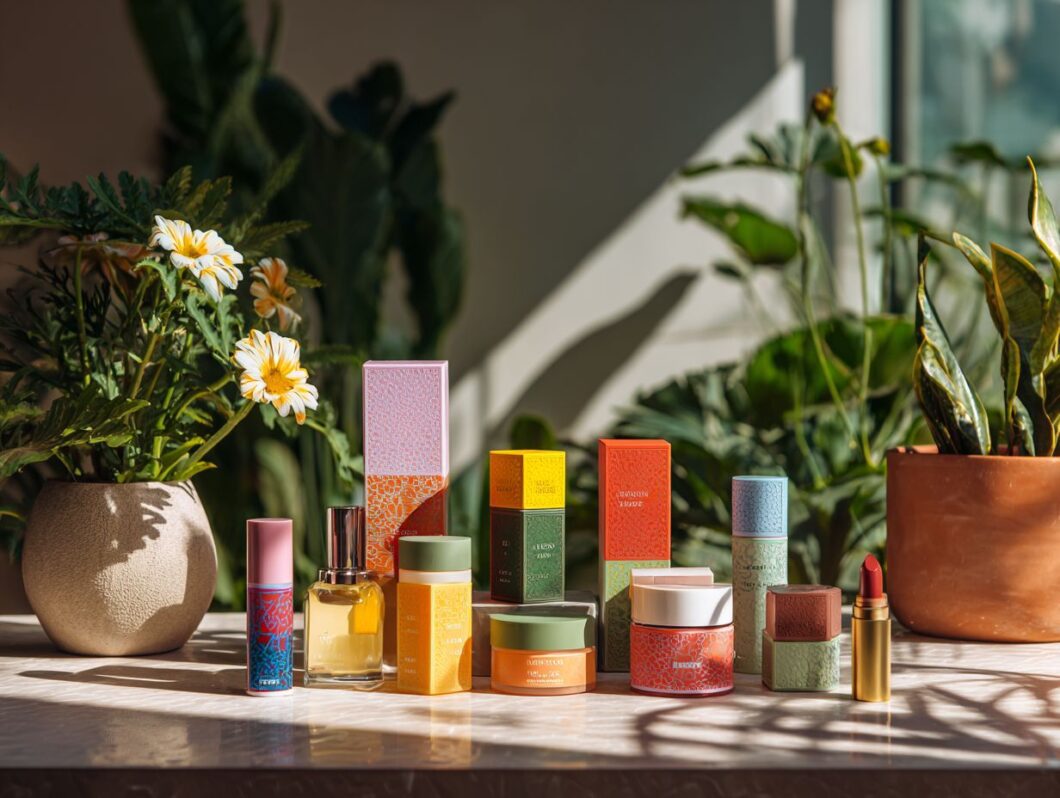The beauty industry is buzzing with innovation as new beauty startups emerge in 2025, setting the stage for the next big thing in personal care. Brands like 900.care, Documents, and Hue are redefining beauty trends with cutting-edge skincare solutions that prioritize sustainability, inclusivity, and innovative products. In this article, we’ll explore the latest breakthroughs from these trailblazing beauty brands and uncover how they are shaping the future of the beauty landscape.
Key Takeaways:
Innovative Product Categories
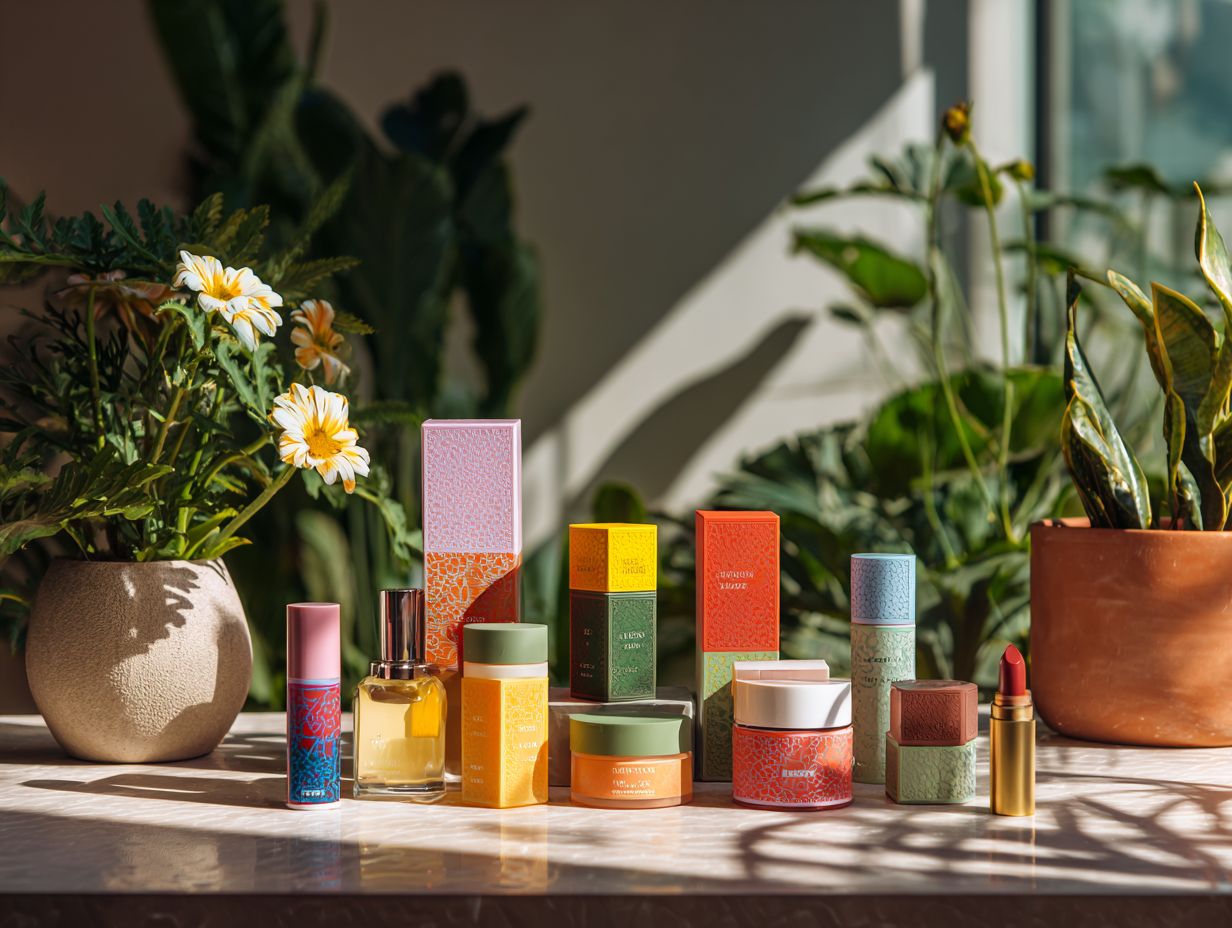
I have observed a significant surge in innovative product categories within the beauty industry, addressing a wide range of consumer needs, from luxury beauty items to affordable grooming solutions and waterless shampoo.
Clean Beauty Revolution
In 2025, I observe that 60% of consumers prioritize clean beauty products, with brands like 900.care at the forefront, utilizing biodegradable pigments, clean ingredients, and sustainable packaging. This shift is significantly reshaping product formulation, prompting brands to eliminate harmful chemicals and adopt a stance of transparency in their unique formulations.
For example, 900.care’s focus on natural ingredients reflects the growing consumer demand for non-toxic formulations.
Data indicates that 70% of millennials prefer brands that openly disclose their ingredient sources. As a result, marketing strategies are evolving; brands are now emphasizing eco-conscious practices and effectively engaging younger audiences through social media platforms.
Consequently, the clean beauty movement is emerging as a substantial trend, redefining industry standards rather than being just a passing fad.
Personalized Skincare Solutions
Personalized skincare is revolutionizing the market, with startups like Oak Essentials providing tailored solutions that address individual skin concerns, such as hyperpigmentation. This trend is largely driven by advanced technologies, including artificial intelligence and machine learning, which analyze user data to create customized products.
For instance, Proven Skincare employs a quiz-based system to evaluate skin types and recommend a unique regimen, leading to a 40% increase in customer satisfaction. According to Statista, 60% of consumers prefer personalized skincare, prompting brands to innovate continually.
Consequently, companies like SkinCeuticals are utilizing data analytics to gather real-time feedback on skincare treatments and facial treatments, ensuring that their products effectively meet the evolving needs of consumers.
Technology Integration in Beauty
I recognize that technology is fundamentally transforming the development and marketing of beauty products, with advancements such as AI and AR leading the way in these changes.
AI and Virtual Try-Ons
AI-driven virtual try-on technology has transformed the shopping experience, exemplified by brands like Sephora, which have seen customer engagement rise by 40%. This innovative technology enables customers to visualize makeup on their own faces through smartphone apps or in-store kiosks.
For instance, I found that L’Oral’s Virtual Makeup Try-On has led to a 25% increase in conversion rates while also significantly decreasing return rates. Similarly, Este Lauder’s app, which incorporates augmented reality, has reported a 30% improvement in customer satisfaction metrics.
These tools not only enhance the user experience but also provide brands with valuable insights into customer preferences and trends, ultimately influencing future product offerings and luxury positioning.
AR in Product Development
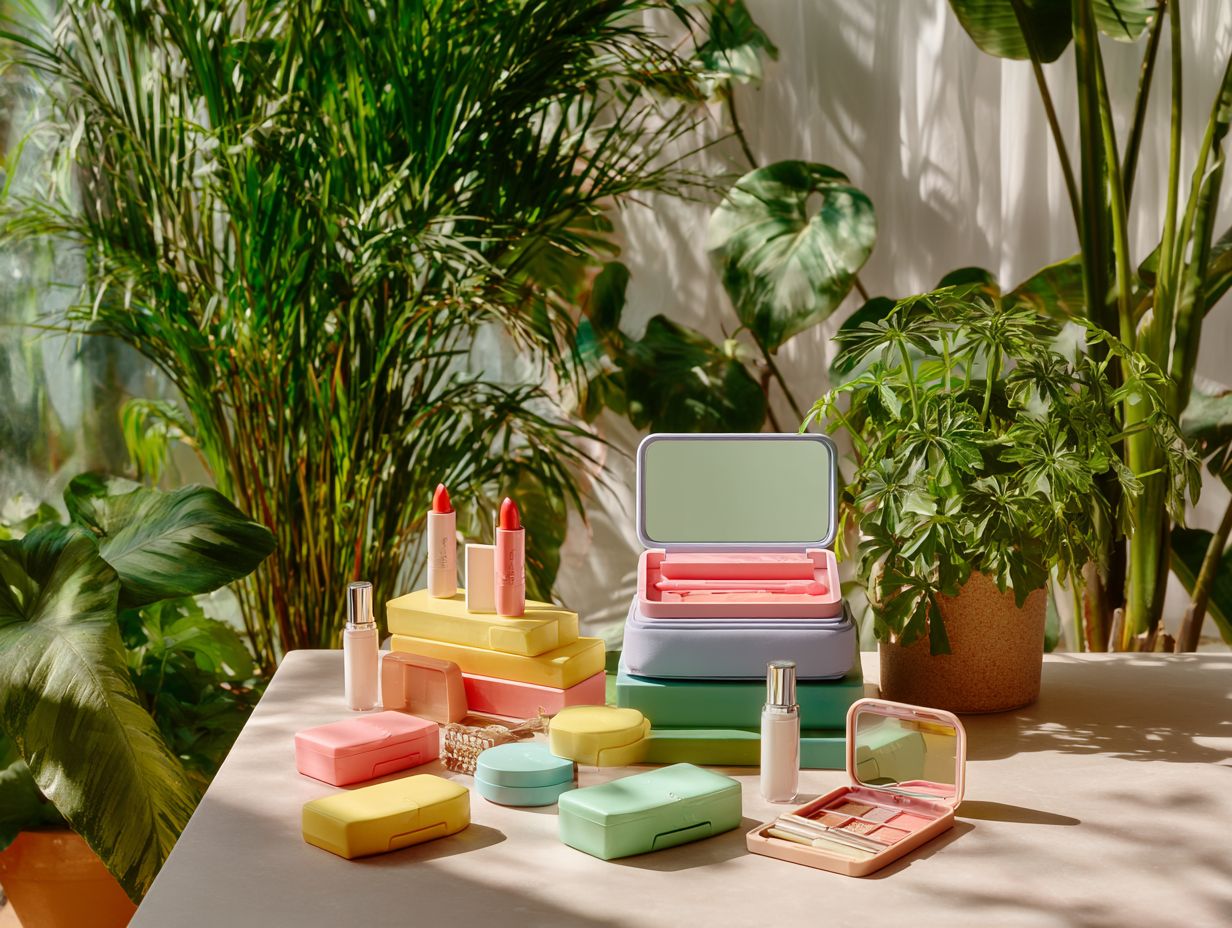
I have found that Augmented Reality (AR) has become an essential component of product development in the beauty industry, enabling brands to visualize and test formulations before they hit the market.
For example, L’Oral’s AR technology allows users to virtually try on products and receive real-time feedback on shades and textures. This innovative approach has resulted in a reported 30% increase in customer engagement and a 20% boost in conversion rates.
Similarly, brands like Sephora have successfully integrated AR into their apps, promoting user-generated content and enhancing the overall shopping experience with beauty innovations. By simulating how products appear on various skin tones, companies can fine-tune their formulations and marketing strategies before a full launch, significantly reducing the risk of product failure.
Sustainability Trends
I recognize that sustainability is no longer optional; it has become a necessity in the beauty industry.
In fact, 70% of consumers now prefer eco-friendly packaging solutions.
Eco-Friendly Packaging Initiatives
I have observed that brands are increasingly investing in eco-friendly packaging initiatives, with companies like Moxie Beauty setting a strong example by utilizing biodegradable and recyclable materials. Moxie Beauty’s commitment to sustainability has led to an impressive 30% increase in sales over two years, which is directly linked to their transition to these materials.
Another noteworthy example is Aveda, which uses 100% recycled PET for its product bottles. This initiative has garnered significant consumer approval, with 85% of their customers expressing a preference for eco-friendly packaging.
By adopting sustainable practices, brands not only enhance their public image but also respond to the growing consumer demand for environmental responsibility and ethical production, ultimately resulting in stronger brand loyalty and increased revenue.
Consumer Behavior Shifts
I have observed that today’s consumers are significantly driving a shift towards inclusivity and diversity in the beauty industry.
This trend is influencing product ranges, beauty product range, and shaping marketing strategies in meaningful ways.
Rise of Inclusivity and Diversity
The rise of inclusivity in the beauty industry has prompted me to observe how brands are expanding their product lines to address diverse ethnic hair care needs and teen-focused skincare, as illustrated by KinKind’s offerings.
Brands such as SheaMoisture and Fenty Beauty have not only broadened their product ranges, including vegan beauty products, but have also actively engaged with consumers. For instance, SheaMoisture launched its “My Hair Is” campaign to celebrate various hair textures, while Fenty Beauty set a new standard with its 40-shade foundation line, catering to all skin tones.
Additionally, brands like Dove promote body positivity in their marketing by showcasing diverse body types in their advertisements. These strategies not only enhance brand loyalty but also resonate profoundly with consumers who prioritize representation and authenticity.
Funding and Investment Trends
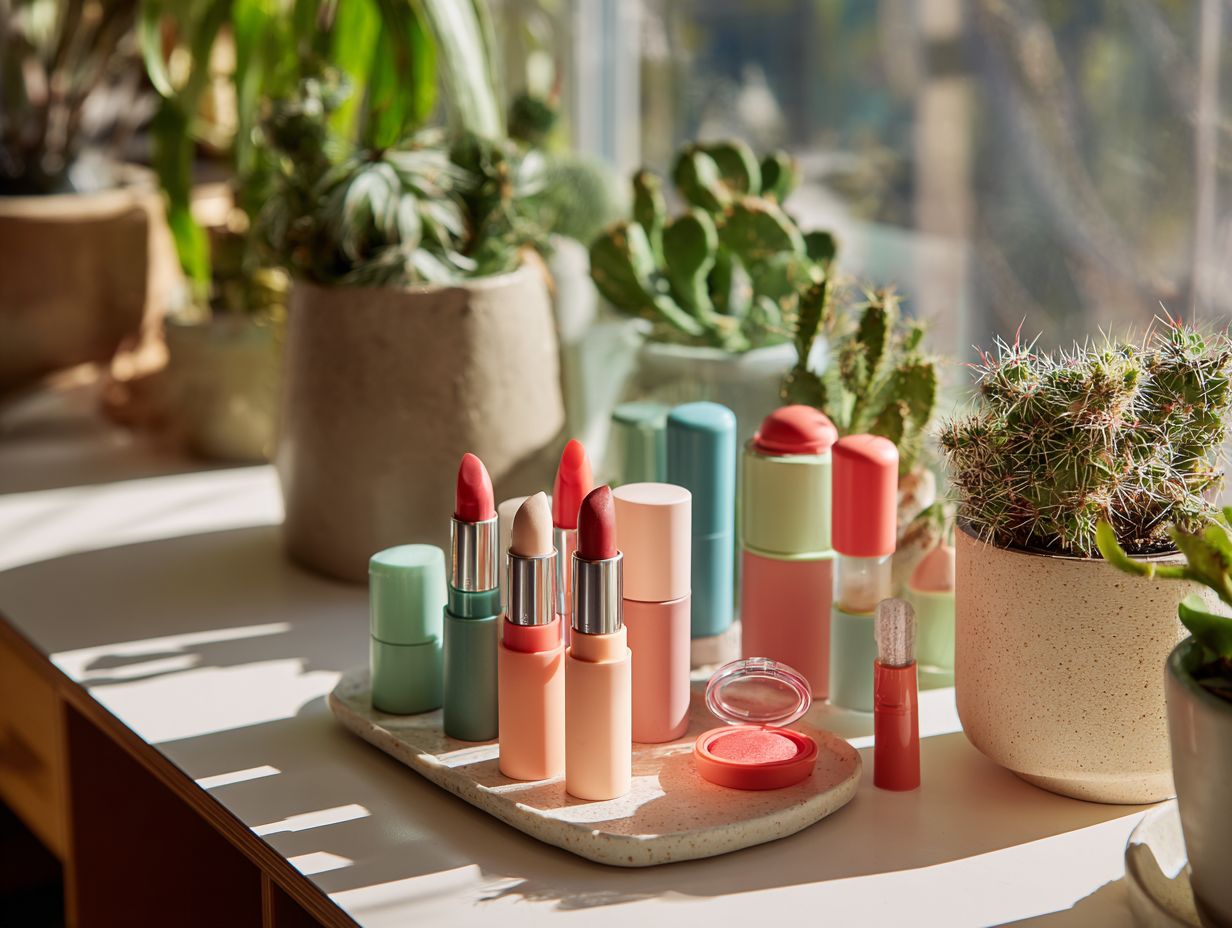
I have observed that investment in beauty startups has surged dramatically, with a remarkable $1.5 billion raised in 2024 alone.
This trend indicates a strong level of market confidence and presents significant expansion opportunities within the industry.
Emerging Market Opportunities
Emerging markets offer a significant array of opportunities, particularly in regions where the demand for beauty products is surpassing supply, such as Southeast Asia. To effectively capitalize on this trend, I recognize the importance of localizing my offerings, which entails formulating products that cater to specific skin types, cultural preferences, and climatic conditions.
For example, I have observed that lightweight, water-based moisturizers are increasingly favored in humid climates. Additionally, partnering with local influencers can greatly enhance brand visibility and credibility.
Utilizing platforms like Instagram and TikTok is essential for these brand partnerships, as they enable direct engagement with target audiences. By implementing these strategies, I can effectively tap into this rapidly expanding market.
Case Studies of Successful Startups
I find that analyzing successful beauty startups provides valuable insights into effective strategies and market positioning within a competitive landscape.
This examination allows me to identify best practices, market expansion opportunities, and trends that can inform my own approach in the beauty industry.
Notable Brands to Watch
Brands like Mallows Beauty and Trinny London are exemplifying success in the beauty startup sector through innovative marketing and product development strategies.
Mallows Beauty stands out with its unique approach to inclusivity, offering a diverse range of complexion products and natural personal care designed to meet the needs of various skin tones. This commitment to inclusivity has resulted in an impressive 150% growth in sales year-over-year.
On the other hand, Trinny London has effectively leveraged a direct-to-consumer model paired with personalized online consultations, leading to a significant boost in customer retention. Their revenue reportedly reached GBP11 million within just two years, underscoring the effectiveness of tailored marketing strategies.
Both brands are also placing a strong emphasis on sustainability, which resonates with the growing consumer preference for eco-friendly products, thus further enhancing their market appeal.
Frequently Asked Questions
What are some new beauty startups that are expected to make waves in 2025?
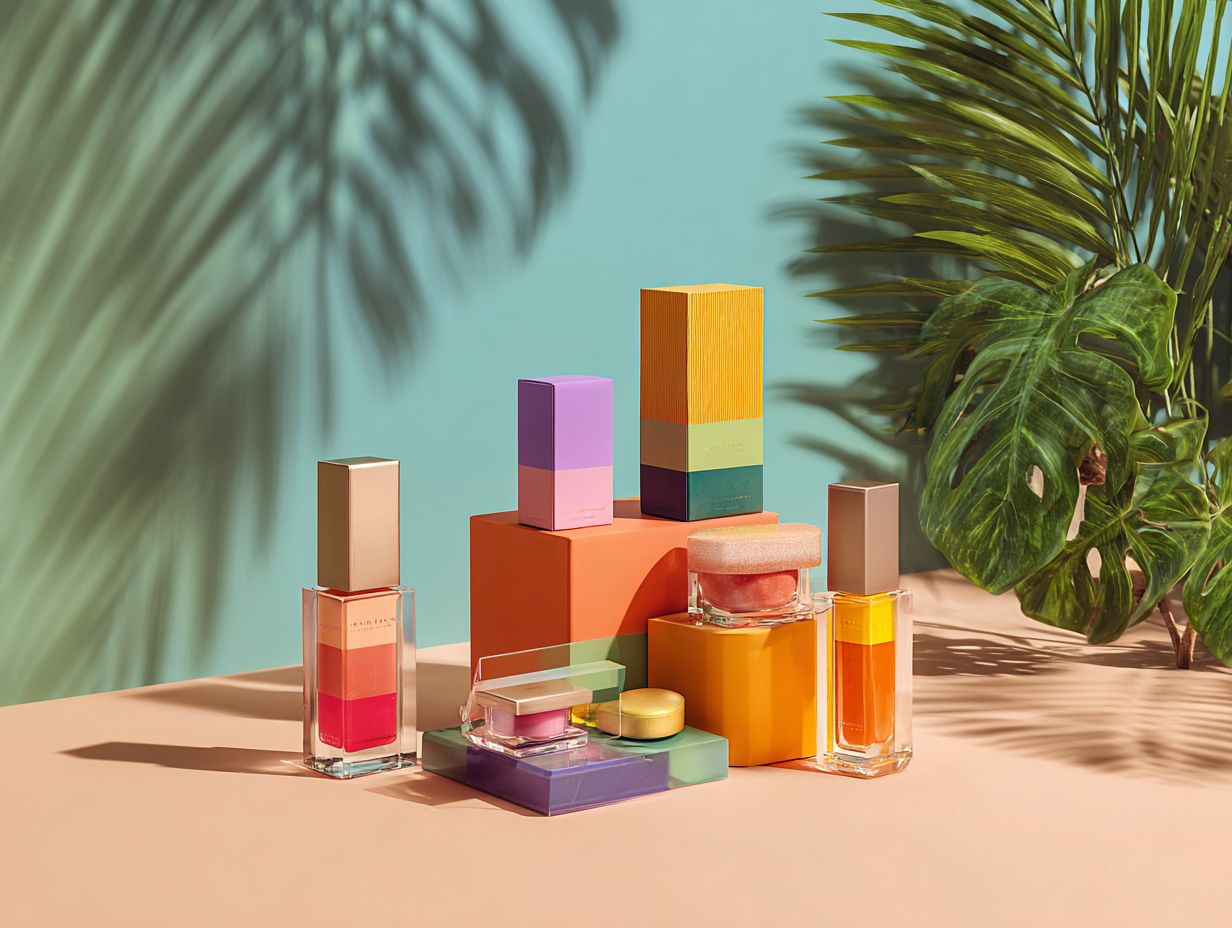
Some new beauty startups that are expected to make waves in 2025 include Glossier, Fenty Beauty, and Huda Beauty, paving the way for the next big thing in beauty.
What makes these beauty startups stand out from others?
These beauty startups have gained a lot of attention and success due to their unique marketing strategies, innovative products, sustainable beauty practices, and inclusive approach to beauty.
Will these startups be available globally by 2025 with the support of investment funding?
It is likely that these startups will expand their reach globally by 2025, as they have already gained popularity in various countries and have plans for international expansion and environmentally friendly packaging innovations.
What type of products can we expect from these startups in the evolving skincare market?
These startups are known for their diverse range of products, including makeup, skincare, and haircare, addressing hyperpigmentation concerns and designed to cater to a wide range of skin tones and types.
How are these beauty entrepreneurs making a positive impact in the beauty industry?
These startups are challenging traditional beauty standards and promoting inclusivity and diversity in the industry, which has been well-received by consumers and supported by successful funding rounds.
Are there other new beauty startups to watch out for in 2025 in the competitive beauty market?
Yes, there are many other promising beauty startups that are expected to make waves in 2025, such as Drunk Elephant, Milk Makeup, The Ordinary, and internationally recognized fragrance brands with a focus on cultural understanding.


